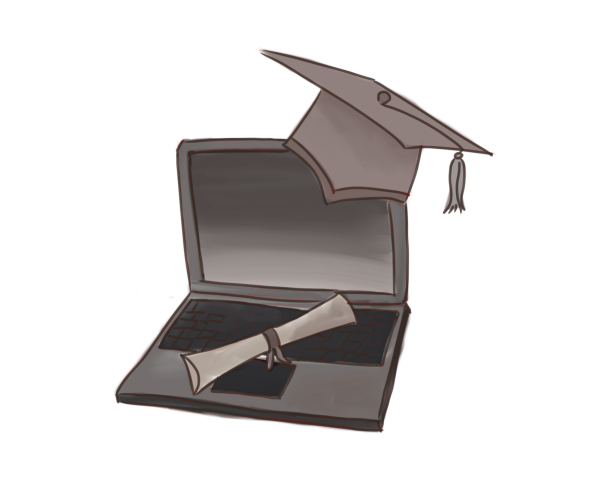Students, Time to Grade Teachers
While school districts around the state are trying to figure out the proficiency of their schools’ teachers mainly through the observations by administrators and standardized test scores, the answer might not be as simple as they think. The main systematic makeup of a “good” teacher is that the people they are instructing are able to understand the curriculum. However, according to the Association for Supervision and Curriculum Development, when principals are asked about the elements of a good teacher, they say that passion, patience, and their ability to grow and reflect on themselves are the elements of a good teacher. While these are good qualities in a teacher, the only people who can truly judge a teacher about their ability must be the people receiving the instruction. Students spend the most time in the classrooms with their teachers, so they should be the judge how well a teacher suits these requirements.
Test scores are an accurate measure of whether or not students are learning; however, they do not reveal the ability of the teacher. The score is only a statistic, and if a student is naturally smart then they might be able to consistently earn good scores on tests, not through the teacher’s ability to teach. Likewise, those who are not as good at the subject will struggle if they are incapable of self-sufficient studying. A student evaluation can be a great attribution towards helping a teacher’s weakness and acknowledging their strengths. It is difficult to always know the reason for students’ incline or decline in performance, so an evaluation can assist their educator on how they can better explain the material in a more easily understandable manner.
Since students are the ones learning from their teachers for a countless number of hours throughout the school year, they have the most reliable knowledge about the faculty’s performance. A study conducted by Ronald Ferguson, an economist at Harvard, found one common aspect that stood out; by asking students the right questions, most schools can accurately distinguish their most and least effective teachers.
The study surprisingly revealed that the control that teachers have over their classroom and their ability to make it challenging for their students was more essential than their care for the kids. Some of the questions include asking about the respect levels between teacher and students, how busy and productive each class is, and how much learning goes on each day. The Bill & Melinda Gates Foundation gave a quarter-million students scattered in towns across the country surveys to identify their thoughts on their educators and figure out what aspects need improvement. The survey results were considered to be more reliable than classroom observations, student test-score growth, and all other measures of evaluating teachers. As a result, in 2012, Washington decided to make the surveys available to all principals and teachers who wished to use them. In addition, Chicago also started including the surveys and actually made it worth 10% of a teacher’s evaluation in 2013.
Some believe that high school teenagers are not credible enough to provide a reliable source of impartial information. For example, a student spiteful for having a bad grade in the class might be more inclined to give worse input about their teacher. However, like there will always be some inclinations towards certain teachers, there is bound to be a small handful of biased thinking with teachers reflecting upon student grades. Nonetheless, the evaluation should be taken with more or less regard depending on the student’s grade as a whole, as well as their standing in the class itself.
Like any healthy relationship, communication is key. While it is acceptable for a teacher to carefully assess then share their input with a student to help them improve, it should be appropriate for a student to do the same. Through teacher evaluations, students will be able to offer valuable insight that in turn will allow their teachers to help themselves understand what is being taught. CHS must start implementing student input on teacher evaluations in order to help the school improve. There is no better place to find information than from the students who see their teachers daily.
Hello there! Our goal is to provide relavent, engaging journalism for readers of all ages. Your donation will support the student journalists of the Wolfpacket at Claremont High School, and will allow us to purchase equipment, print our monthly issues, and enter in journalism competitions. We appreciate your consideration!

Sydney Hwang is a senior at Claremont High School, and it is her fourth year on The Wolfpacket. She is excited to be the Editor-in-Chief this year and...




